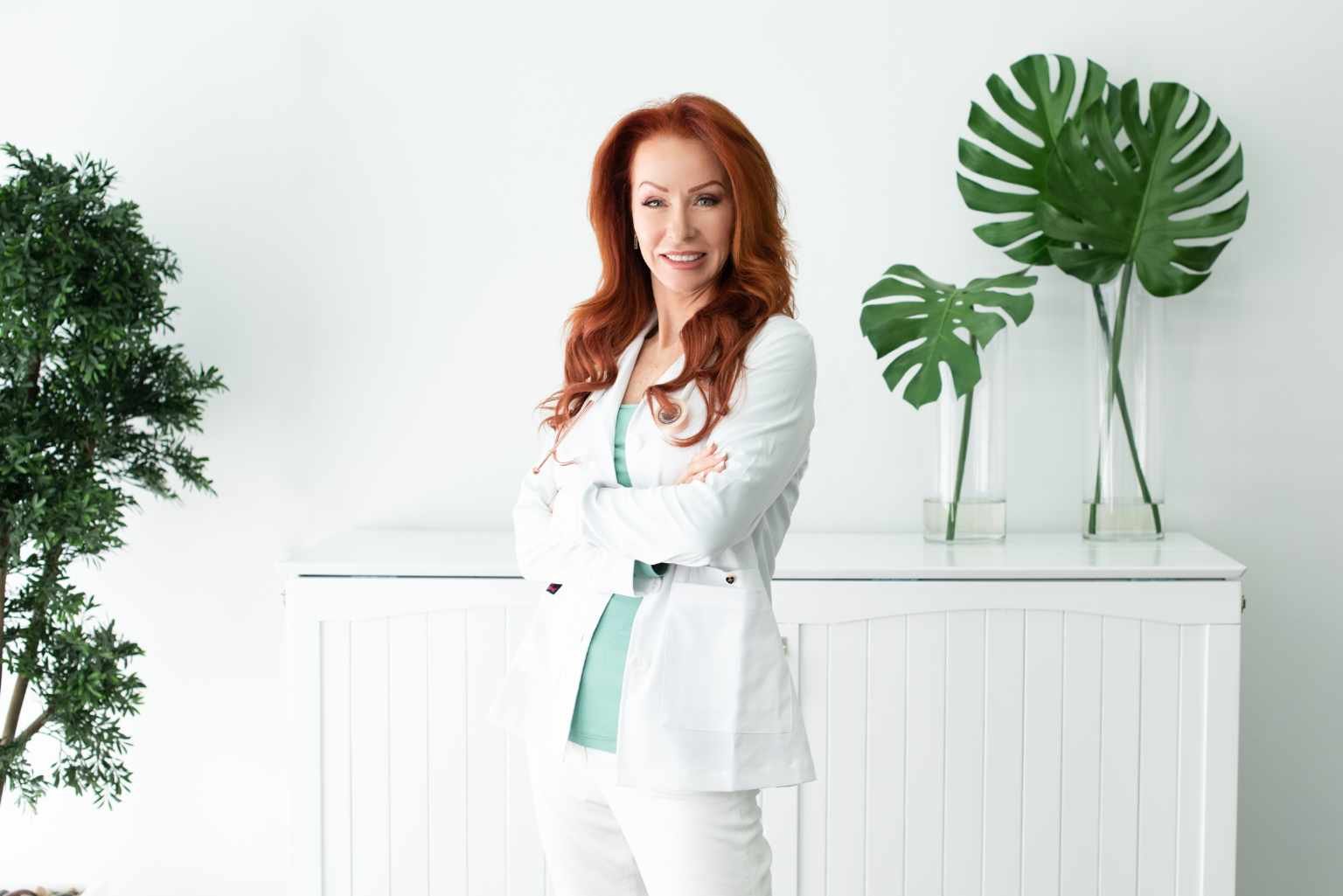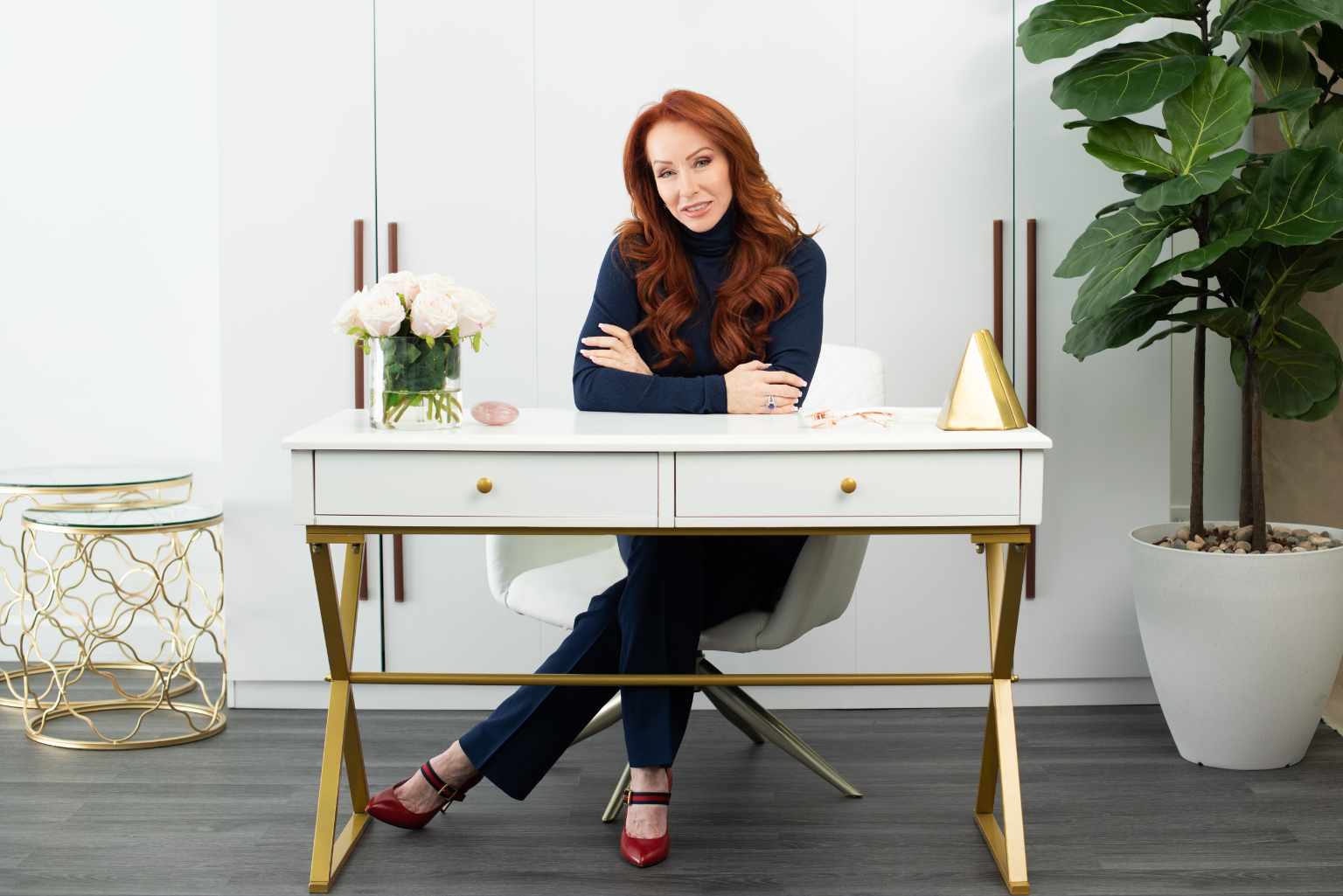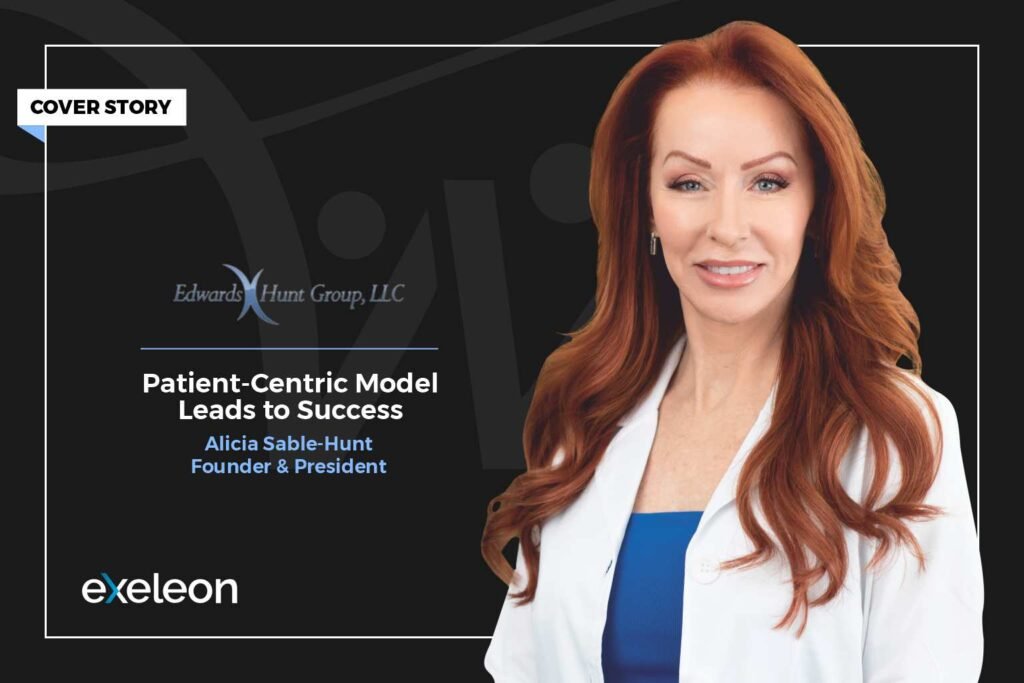Entrepreneurship empowers progress, prosperity, and sustainable solutions for social problems. In fact, modern trends show that women are the driving force of entrepreneurial growth — not just in the present but also for the future.
One such powerful woman that dictates her own definition of business success is Alicia Sable-Hunt. She is the President of Edwards-Hunt Group (EHG) — an organization focused on the development of patient-centered clinical research programs in cancerous and other disease conditions. Additionally, she is also a registered nurse and has invested over 25 years working in the fields of clinical research and nursing.
As an experienced businesswoman, Alicia believes her ‘power’ stems from knowing herself. “There comes a moment in a woman’s life when she looks in the mirror and finally applauds her successes and is no longer ashamed of her failures, identifies her many strengths and acknowledges her insecurities, feels worthy but is not willing to settle, just yet. At that moment with an overabundance of emotions, I finally felt powerful. The trick is to have more and more of these moments,” she shares.
Speaking on behalf of all entrepreneurs, Alicia feels that everyone is in a perpetual state of achieving their vision and the next milestone — for their customers, employees, investors, and lastly, themselves.
Inspired by this belief, she integrates the same thought into her leadership. Perhaps, the most difficult lesson she learned was that leadership does not come with the job title.
“Opening a business and donning the title of President, did not make me a leader,” she clarifies. Leadership requires knowledge, experience, humility, empathy, and confidence. Leadership is a state of mind and a way of existence.
Rise of a High-Powered Entrepreneur
While many entrepreneurs indulged in thoughtful experiments throughout their prime years —like starting a lemonade stand, or girl scout cookies sales —it does not hold true for Alicia.
She says, “I grew up with a single, entrepreneurial mother blazing her own pathway before doing so was acceptable to society at large. Creating my own future is the only way I know to exist. Is it nature or. nurture? No idea and I don’t care!”
Soon after, Alicia dipped her toes into the traditional healthcare environment working at a big hospital. She tried to conform to both — society’s and her profession’s expectations — of a nurse. When that didn’t work, she applied to a big pharmaceutical company and was rejected. The supervisor that interviewed her said something to the effect of “You’re not going to be happy in this structured environment. You need to work for yourself.” She recognized an unusual spark about Alicia, one that she wasn’t aware of yet.
Later, Alicia turned towards travel nursing, wherein she was in control of her career. She says, “I had the honor of working in some of the best hospital systems and with the best healthcare professionals in America.” This enabled her to grow her clinical research knowledge and make an impact on the oncology population from one patient at a time (in a hospital setting), to a small group of patients receiving new oncology treatments in a single clinical trial, to participating in the clinical trial development process that impacts the entire patient community.

Moving the Needle in Life Sciences Space
Alicia had never intentionally set out to become a registered nurse or an entrepreneur. In fact, her mother, an optician, co-owned an optical store. “I was working for my mother as the assistant to the eye doctor. The patients regularly referred to me as the nurse. Simultaneously, my boyfriend’s sister was in nursing school,” she fondly recalls.
She credits the universe that had her back and put her in the right place at the right time which resulted in her being accepted to nursing school. “Truthfully, I didn’t know what nursing entailed until I was in school.”
Taking a trip down memory lane, she recalls two seminal moments in nursing school. The first was during her first semester where her clinical instructor accused her of being intellectually lazy and told her to either step up or not return. “I was shocked. To this day I can still feel the fear and subsequent determination to succeed that she instilled in me at that moment. I chose to step up,” she asserts.
The second was during her last semester of nursing school. She shares, “I was a student in the pediatric oncology unit helping to care for a child that received a bone marrow transplant. It was detailed, complicated care that we were providing the child while teaching the parents about the treatment plan. By the end of the shift, I realized that my actions helped someone in need.”
She continues, “For the first time ever, I understood what it meant to be a nurse. I am still humbled that I had a brief opportunity to be part of that child’s and family’s experience. I still feel the joy and sense of wonder of caring for that child. It was on this day that my passion, career, and life’s journey began. It was on this day that I became Nurse Alicia.”
Launching her Passion Project — Edwards-Hunt Group
As a young, single woman with a grand idea to create a line of nutrition bars for adult cancer patients, Alicia made the decision to quit her high-profile job for a leading non-profit organization that was founded by a patient determined to cure a little known cancer through patient-directed and patient-funded clinical research.
“I had no plan, no temporary source of income, just an idea and more arrogance than money. When I submitted my resignation to my boss, the CEO and Founder, she elucidated the numerous ways I was failing her organization at a critical time point and my ignorance of what bringing a business idea to fruition entailed,” she recalls.
The Edwards-Hunt Group (EHG) was formed to offer temporary consulting services to her prior employer while they searched for her replacement. So, she quit her job and opened two businesses simultaneously: One to develop a nutrition bar for cancer patients and Edwards-Hunt Group.
“My former employer became a client for 7 years and taught me more about building a business than my business school and how to be in service to the patient community than any healthcare setting. I quickly realized that my clinical research work under the Edwards-Hunt Group was an extension of my nursing career and filled me with joy more than creating a food product. EHG has now been open for 16 years.”
Regardless of where she stands, Alicia holds client satisfaction close to her heart. This also reflects in her company’s tagline, “Trusted Clinical Research Operations Professionals.”
She says, “Our clients trust that we will prioritize their project, trust that we know the nuances of the disease and regulatory environment, and most importantly, trust that we will put the patient first in the study design and logistics.” Therefore, there is only one rule in her company – The patient comes first.
This is her mantra, her approach, her process, and all things in between. She constantly asks, “Are we doing right by the patient?” because she believes that she can successfully integrate the patient’s experience into the clinical study design and still achieve the client’s scientific end points within the expected timeline and budget.
Weaving her Work into Her Life
Alicia does not believe in the concept of work-life balance. “This concept escapes me!” she remarks.
There are days where she spends a big chunk of her time simultaneously responding to emails, managing her home renovation, planning a fun weekend getaway, and wondering if she should expand EHG into a new sector or open another business. “I am multitasking in my business and personal lives but don’t feel bad for me, I love my life!” she quickly points out.
“I wake up and return to bed at the same time every day. I prioritize my health with exercise, vitamin regime, and a strict diet. I make time to play with my kitten, a Ragdoll named Sky. I have a special date night every two weeks. I attend church services regularly with my family. The continuity of my schedule allows me to sanely manage what others may view as chaos,” she elaborates.

Creating Value for Others
Alicia became a dynamic leader when she realized that femininity is a strength; when she embraced the nurse within her; when she realized that her ultimate goal is to selflessly serve the patient community; and when she decided to reject society’s definition of success and created her own world.
On the flip side, she also feels that “Entrepreneurship is very lonely.” It is easy to lose yourself in the development phase, then the launch phase, then the growth phase, rinse and repeat, always de-prioritizing yourself for the sake of the company.
It is important to find ways to remind yourself why you chose this pathway in life. It’s about finding perspective. It’s about reconnecting with your passion.
For Alicia, giving back to the patient community through acts of service, by being Nurse Alicia to a patient in need, reconnects her to her “why”. It reminds her that her company’s work is impactful to the patient community, not just to her clients. “It reinvigorates me and challenges me to do more, better, and faster because there is a patient at the end of every project and program my company develops,” she shares.
The Best Business Advice for Women
Alicia feels that being a woman is a strength. She goes one step further and adds, “You don’t need to be less of a woman to be more successful.”
As much as societal norms can take a toll on you, she insists on carving your own way. While this journey will demand a lot of sacrifice to bring your vision to life, she suggests to “never let go of your femininity or your moral compass.”
Another piece of sage wisdom Alicia offers: “Have an honest conversation with yourself on the definition of success as a woman and as a business leader. Know that your definition of success will change with time and experience and, that this is okay.”
Planning a Clinical Revolution
An entrepreneur will always have a set of business goals in their mind to leverage the organization. According to business needs, these goals may differ. For some, the initial goal will be to get the right resources to kickstart the company; while for others, the goal could be to keep the company operating at full capacity, taking care of the revenue and profits.
Alicia finds herself asking how EHG can be more impactful to the patient community? Her mind is puzzled with questions like: Should I expand upon the Nurse Alicia brand by becoming a nurse practitioner? Will another nursing degree help me be more impactful to my clients and patient community? Should I expand EHG to include direct-to-patient care by opening a brick-and-mortar clinical research center? How can EHG build more effective clinical research programs for the disease-specific non-profit sector? Should EHG expand into other phases of drug and device development? Or should EHG focus on developing and executing larger scale clinical research programs that have greater patient reach? Can I do all these things and if so, how quickly and in what order?
Above all, she is most excited about demonstrating— through her actions, that this female, nurse, entrepreneur is not done working on behalf of the patient community.
Magazine Links:
Photo Credits:
Social Links:










